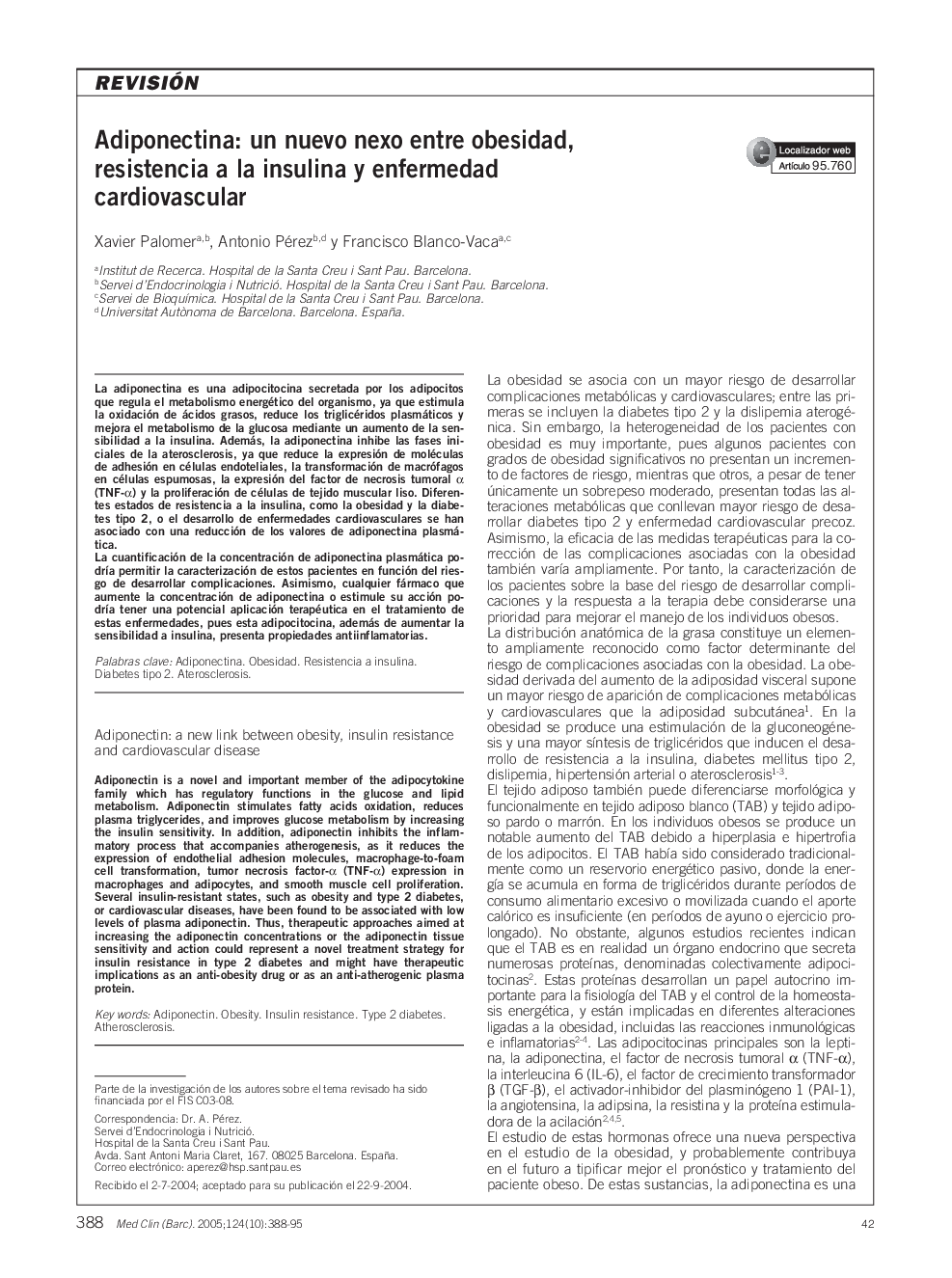| Article ID | Journal | Published Year | Pages | File Type |
|---|---|---|---|---|
| 9298732 | Medicina Clínica | 2005 | 8 Pages |
Abstract
Adiponectin is a novel and important member of the adipocytokine family which has regulatory functions in the glucose and lipid metabolism. Adiponectin stimulates fatty acids oxidation, reduces plasma triglycerides, and improves glucose metabolism by increasing the insulin sensitivity. In addition, adiponectin inhibits the inflammatory process that accompanies atherogenesis, as it reduces the expression of endothelial adhesion molecules, macrophage-to-foam cell transformation, tumor necrosis factor-α (TNF-α) expression in macrophages and adipocytes, and smooth muscle cell proliferation. Several insulin-resistant states, such as obesity and type 2 diabetes, or cardiovascular diseases, have been found to be associated with low levels of plasma adiponectin. Thus, therapeutic approaches aimed at increasing the adiponectin concentrations or the adiponectin tissue sensitivity and action could represent a novel treatment strategy for insulin resistance in type 2 diabetes and might have therapeutic implications as an anti-obesity drug or as an anti-atherogenic plasma protein.
Keywords
Related Topics
Health Sciences
Medicine and Dentistry
Medicine and Dentistry (General)
Authors
Xavier Palomer, Antonio Pérez, Francisco Blanco-Vaca,
